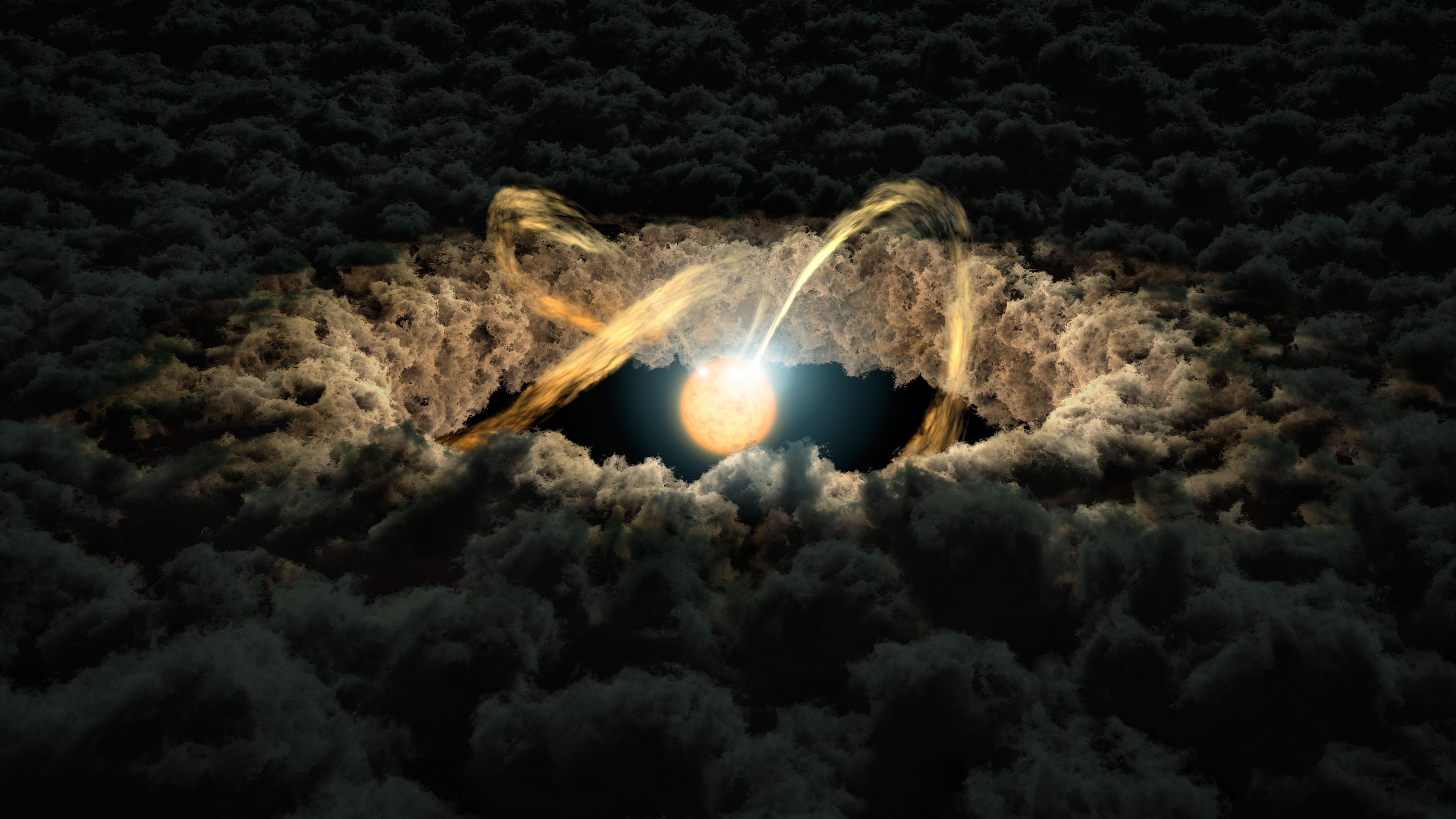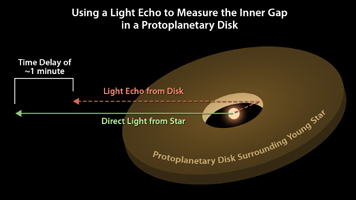
|
Protoplanetary Disk (Artist’s Concept)
- Click the image above for a larger view
- Full-Res JPEG (3840 x 2160) (629.5 kB)
- Full-Res TIFF (3840 x 2160) (13.9 MB)
Caption:
This illustration shows a star surrounded by a protoplanetary disk. Material from the thick disk flows along the star's magnetic field lines and is deposited onto the star' surface. When material hits the star, it lights up brightly.
The star's irregular illumination allows astronomers to measure the gap between the disk and the star by using a technique called "photo-reverberation" or "light echoes." First, astronomers look at how much time it takes for light from the star to arrive at Earth. Then, they compare that with the time it takes for light from the star to bounce off the inner edge of the disk and then arrive at Earth. That time difference is used to measure distance, as the speed of light is constant.
Background Info:
JPL manages the Spitzer Space Telescope mission for NASA's Science Mission Directorate, Washington. Science operations are conducted at the Spitzer Science Center at the California Institute of Technology in Pasadena. Spacecraft operations are based at Lockheed Martin Space Systems Company, Littleton, Colorado. Data from 2MASS and Spitzer are archived at the Infrared Science Archive housed at the Infrared Processing and Analysis Center (IPAC) at Caltech. Caltech manages JPL for NASA.
For more information about Spitzer, visit http://spitzer.caltech.edu and http://www.nasa.gov/spitzer .
Cataloging Keywords:
| Name | Value | Additional Values |
|---|---|---|
| Target | ||
| System | ||
| Target Type | Exoplanet | |
| Mission | Spitzer Space Telescope | |
| Instrument Host | Spitzer Space Telescope | |
| Host Type | Space Telescope | |
| Instrument | ||
| Detector | ||
| Extra Keywords | Artwork, Color, Disk, Infrared, Magnetosphere | |
| Acquisition Date | ||
| Release Date | 2016-04-26 | |
| Date in Caption | ||
| Image Credit | NASA/JPL-Caltech | |
| Source | photojournal.jpl.nasa.gov/catalog/PIA20645 | |
| Identifier | PIA20645 | |

